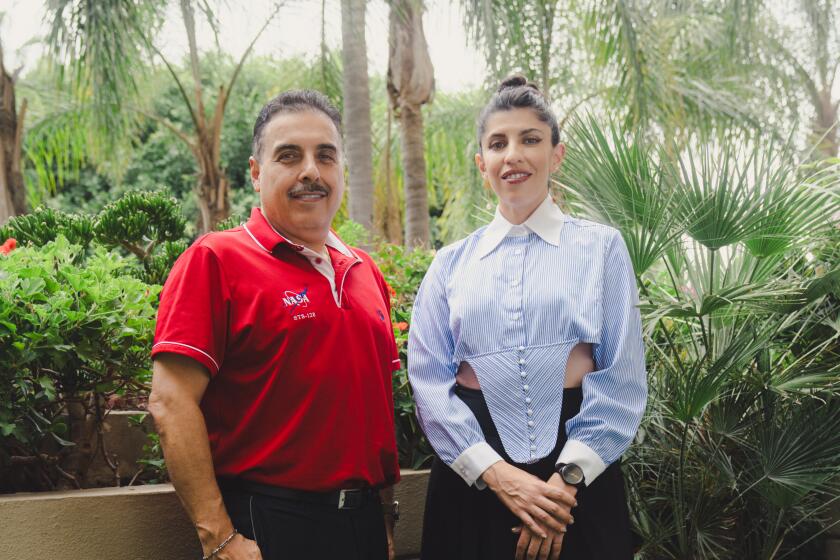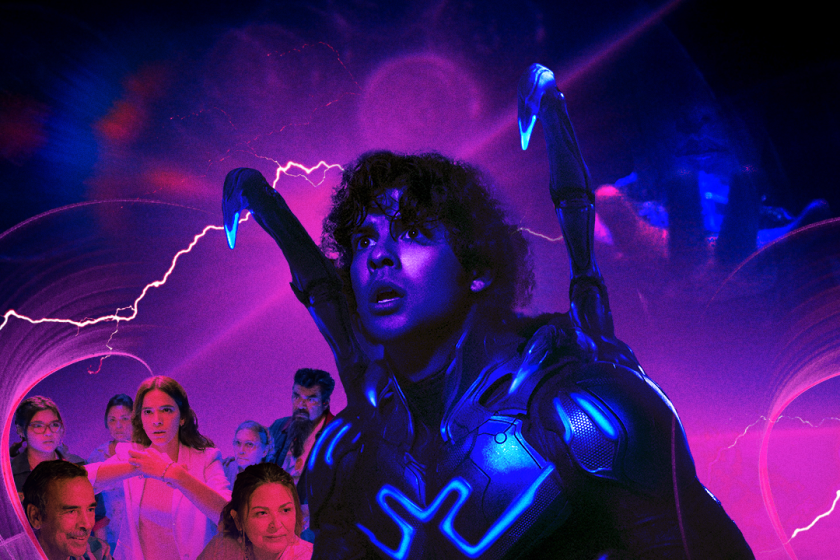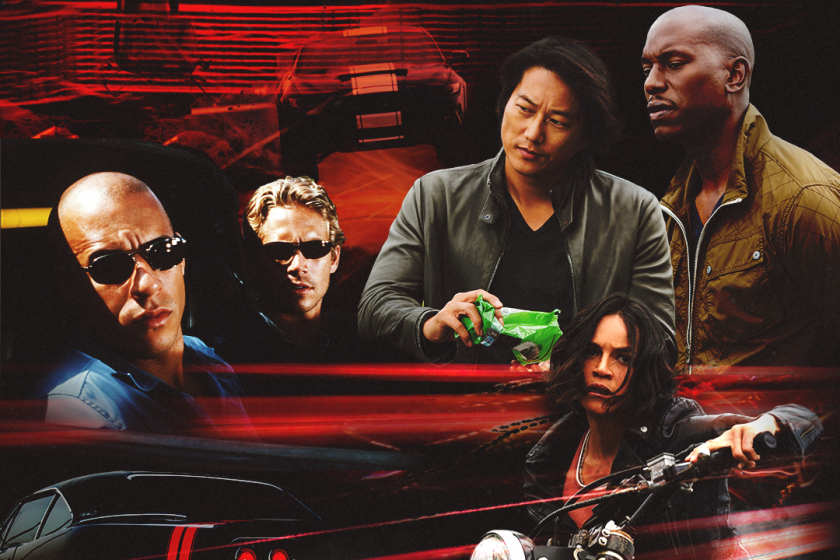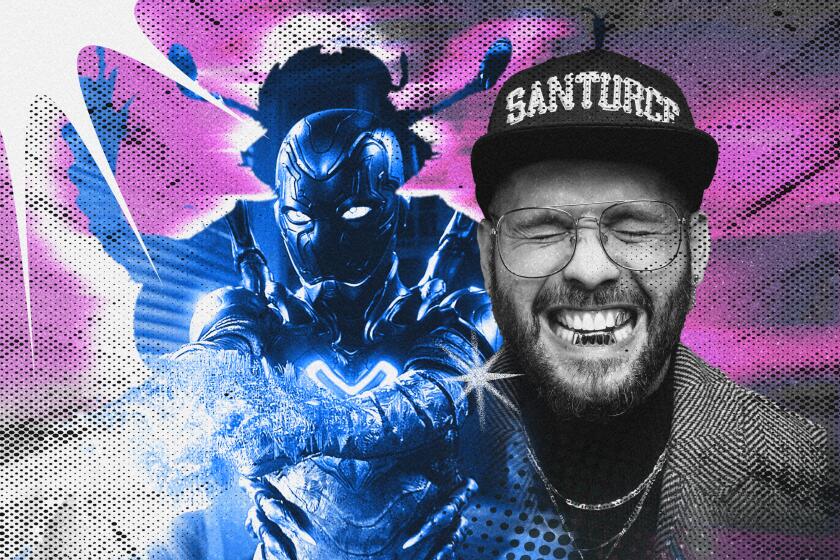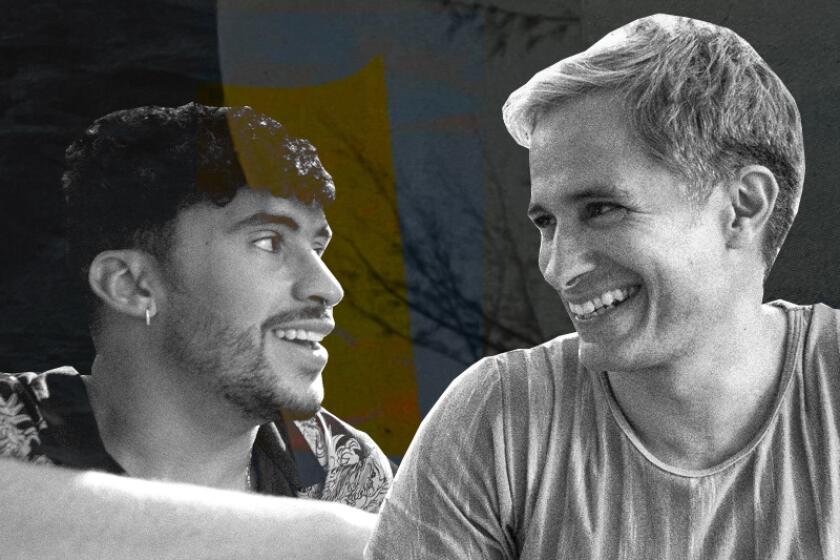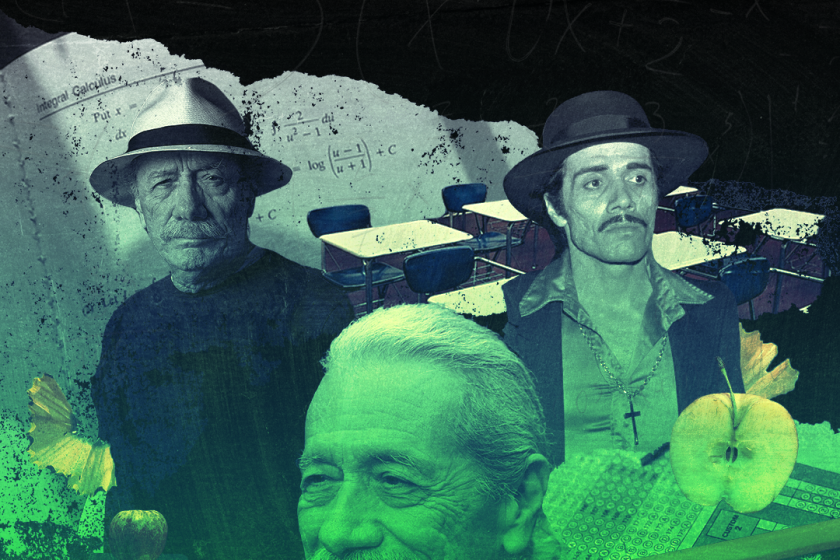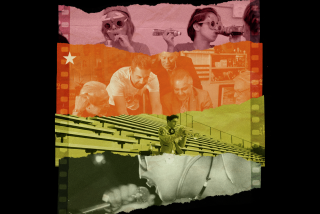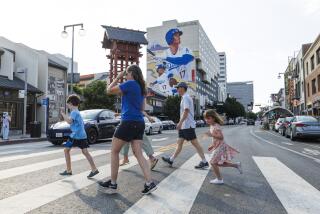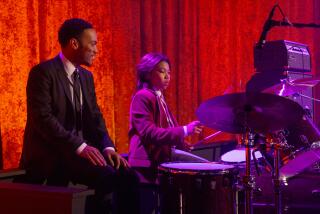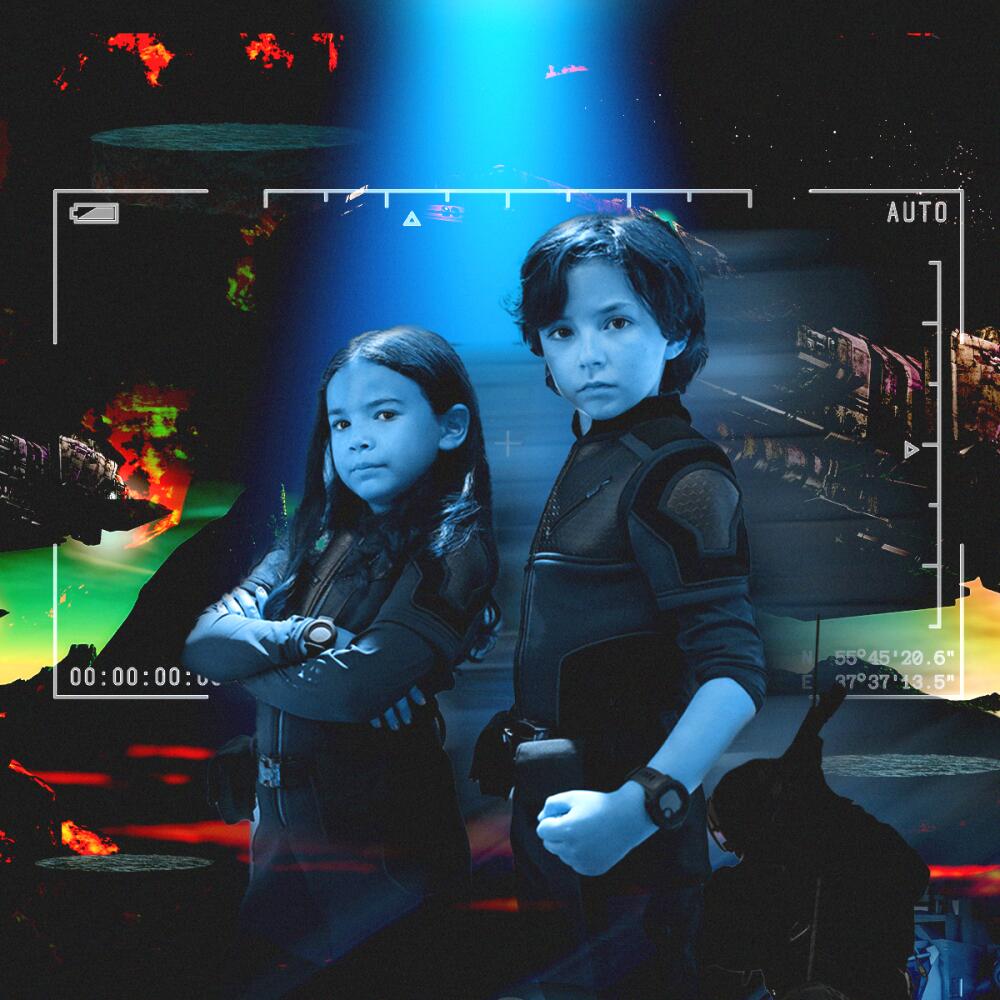
Before it became a runaway box-office success and a milestone of Latino representation in film, the original “Spy Kids” was far from a sure thing. When Robert Rodriguez first pitched his idea of a Latino family of super-spies to studio executives, they weren’t convinced general audiences would turn out. Thankfully, they were wrong.
In 2001, Rodriguez introduced everyone to Carmen (Alexa PenaVega) and Juni Cortez (Daryl Sabara), siblings who have to learn the art of espionage to rescue their parents, Gregorio (Antonio Banderas) and Ingrid (Carla Gugino), top agents for the fictional Organization of Super Spies. The family action-comedy went on to gross nearly $150 million at the box office on a $35-million budget and earned positive reviews from critics.
Since then, “Spy Kids” has grown into an impressive franchise that includes three sequels, Danny Trejo’s “Machete” spinoffs and, two decades later, a reboot.
‘A Million Miles Away’ shares the true story of NASA flight engineer José Hernández. Hernández was rejected by the NASA astronaut training program 11 times before being selected at the age of 41 in 2004.
The latest installment, “Spy Kids: Armageddon,” is out on Netflix today. This time around, the film follows siblings Patty and Tony as they join forces with their secret-agent parents, Nora (Gina Rodriguez) and Terrence (Zachary Levi), to thwart the plans of a power-hungry video game developer.
Ahead of its release, the San Antonio-born writer-director spoke to De Los about the milestone series and the legacy of “Spy Kids.” The following interview has been edited for clarity and length.
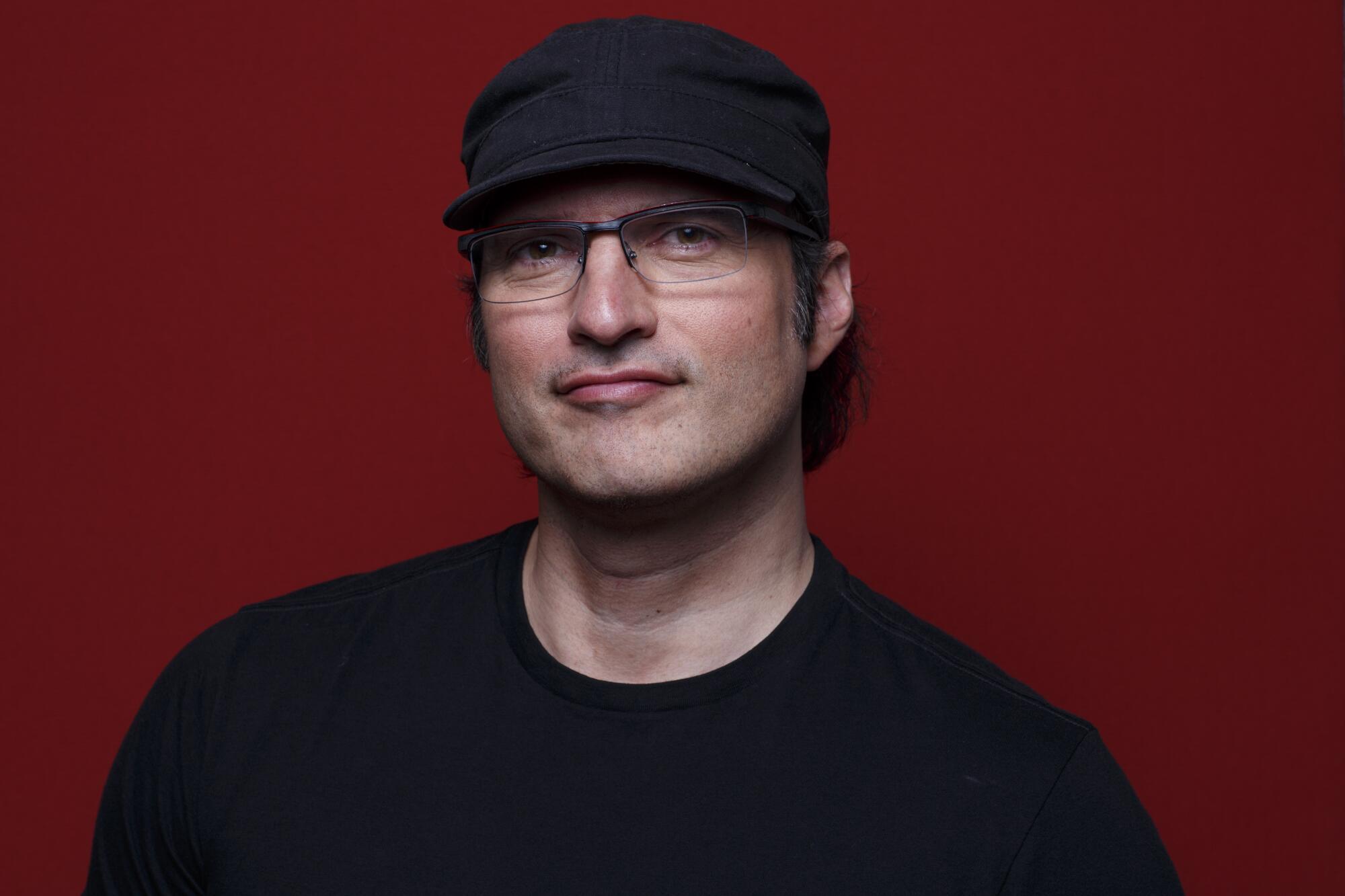
I had my own “Spy Kids” marathon to prepare for this interview, and the series is just as fun as I remember from when I was a kid! What made you want to return to the “Spy Kids” universe?
A lot of the young parents that I know who grew up with it have kids now. And so I thought it would be really special for them to have this legacy moment of watching [“Armageddon”] with their kids and saying, “This is the kind of cool movie I grew up with.”
There are very few movies that you grew up with really loving as a kid where you can show them a new version made by the same people. That’s pretty rare.
The series meant so much to me growing up in San Antonio, and I know I’m not alone in that. Why do you think it’s had such an impact?
A friend once told me, “You don’t understand, you changed my whole kid’s future. When he saw your name in the credits in ‘Spy Kids’ and saw you had a name like ours, it just changed their whole future. It changed who they could be.” That’s the power of representation and diversity onscreen. When you’re not used to seeing yourself, to suddenly see yourself is a big deal, especially in something that’s entertaining. That’s when you’ve entered a realm that’s universal. It’s just a great feeling.
What makes ‘Blue Beetle’ feel so authentic to Latino audiences? Its emphasis on family, says De Los contributor Alex Zaragoza.
It’s hard to get a movie made in Hollywood that isn’t already based on a comic book, so when you come up with your own story that people like and want to watch more of, you’ve just gotta keep making them because it’s such a rare thing. And to involve your own family? I mean, you’re just checking all the boxes there. We’re living the best life, really enjoying it, and we’d love to keep making more.
“Spy Kids” carries a lot of weight with the generation of Latinos who grew up watching it. You initially had to convince the studios that it should focus on a Latino family, right? How did that conversation go?
You know, usually the [movie] business is not very innovative. It is very imitative, though. If something is a success, they’ll imitate that, but you need to be the first success. They had never seen a big movie cast with that many Hispanics, so they were like, “Why don’t you just make the family American?” Well, they are American. It’s based on my family. My uncle was an FBI special agent, Gregorio Rodriguez, and we just changed his name to Cortez for Antonio [Banderas’] character.
They said, “But what if only Hispanics come to see it?” I didn’t think so, but I couldn’t point to another movie that had done it, that would make them feel better about their investment. So you can understand their point of view. Like, if this works, how come no one’s done it? It’s like, because no one’s done it! So I say no, it’s based on my family, and I can’t change my family. But that’s not a good enough argument, so I needed to come up with a good point.
It finally dawned on me: You don’t have to be British to enjoy James Bond. Being British makes him very specific, and it makes him more universal. It makes you wish you were British. They bought that.
As you mentioned, these movies have always been a family affair. Your stories are part of the fabric of the films, but you also worked with your family to bring them to life. How has that approach shaped the franchise?
This is a very unique series of films. It’s the only film series in Hollywood that’s made by a family for other families, so that’s always been part of the DNA of it. My kids have been working on these literally since they could crawl. It’s always been part of the family business that we work together on these because it needs to be based on our family experiences.
The ‘Fast & Furious’ franchise is a film series that is underappreciated for its representation of Black, Latinx and Asian communities that have made the franchise so special, both in its creative team and audiences.
The first films were based more on me growing up with 10 brothers and sisters. Even now, like the scenes of the kids sneaking down the hall with a map — that’s my sister Patty and me. But most of the other experiences are based on my kids growing up.
I used to call myself the king when I played video games. I would beat them all the time until they turned 8 or 9. And then I never won again. [laughs] All of that is in the movie.
You co-wrote “Armageddon” with your son, Racer Max. What was that process like?
As far as Patty and Tony being more technologically savvy, that was my son’s idea. Getting to work with him as a writer, as a composer and as the editor designing the games makes the family experience more authentic, because that’s the part families will relate to.
The spy mission only exists to make the family stronger by the end of the film. But the same thing happens — life imitates art and vice versa. It makes our family stronger to work together on the challenges of making these movies. So it’s essential to the process that we work together. It’s just all full circle.
The gadgets have always been one of my favorite parts of “Spy Kids,” they feel so accurate to what kids might dream up. What’s the brainstorming process for them like?
We try to think of something that really relates to the kids only, like James Bond would never have these gadgets. The kids never just beat the bad guys, they always change the bad guys.
‘Blue Beetle’ director Angel Manuel Soto talks about the movie’s Latinx roots, its music and the ongoing strikes.
So if they’re going up against somebody who’s really aggressive, well, let’s throw this kind of a bomb at them that changes them to be hungry, or happier. They just have the wrong energy, so let’s give them some different juju. Things like that, only a kid would come up with. Like, why don’t you just make them peaceful? Why don’t you just make them good? Trying to make something that was very unique to this film, and only could be in this film, was what we kept trying to come up with.
On the surface level, these films feel so different from the rest of your filmography. It’s kind of funny to remember that you’re also the brain behind “From Dusk Till Dawn” and “El Mariachi.”
Well, it’s weird that the first movies I made were more like “Spy Kids.” My very first movie, called “Bedhead,” starred my little brothers and sisters. I filmed it in the backyard and it’s a precursor to “Spy Kids.” It’s an action and comedy done by a little 9-year-old girl and her 10-year-old brother. It won so many festivals, I thought, that’s going to be my big hit someday, I’m going to make a family film.
It makes sense, I’m from a big family. I’ve made action movies and horror movies, but I always said that my bigger hit is gonna be this family film. Even though it came later, it was actually the thing I knew I was going to make first.
So it makes sense that I’ve made more of those than anything else because when it’s a part of you like that, they’re kind of easy to come up with. And the more you live, the more ideas you’ll have. I mean, I have so many stories just from seeing my kids grow up.
What’s similar about all of these movies is that they’re all from the same cartoonist’s brain — they all have a sense of humor, and they’re all kind of comedies. I never take anything too seriously. The humor is similar through all of them; it’s just that some are for little kids, and some are for big little kids.
In the new film “Cassandro” Bad Bunny shares his first on-screen kiss with Gael García Bernal and speaks with a Mexican accent.
Are there threads of “Spy Kids” in your other movies?
I mean, you see it in “Desperado.” They have guitar cases that fire missiles or guns that come out of his wrist magically. Or he has a guitar case that you open up that’s just a façade, and there are weapons underneath. It’s very “Spy Kids,” just with weapons. It’s the same imagination working.
All these years later, it feels like we’re still having a lot of the same conversations about the lack of Latino stories in film. What do you think is getting in the way?
You know, what helped me is that it’s a very imitative industry, like I said. But you have to do it first, and then they can imitate. Beyond that, well, who’s imitating you? The studios need an authentic voice to do it. So we need more filmmakers who can go write these stories that require these roles. And then they have to have the power to cast the right people so that some studio doesn’t just change it to a different actor, or a different character.
It helped that I was not just the writer but I was the writer and the director. I did so many jobs. I was the producer, and it helped that I had some influence at the studio, because I’d already made them some hits. I could make them release a movie about a spy family, even though they didn’t release those kinds of movies. I had to have a lot of clout for them to do that. So it takes a lot to get it pushed through all the way. That’s why there’s still a need for more filmmakers to make those changes and make it all the way to the screen.
How does today’s industry stack up to when you first began?
Things are better. Things are much easier than it was when I started out, but it’s got a long way to go. So that’s why it feels like we’ve got some traction but not enough. You can’t just point to a few examples; we need many more. And I know there are lots of people out there trying, it’s just that when people do break through, we’ve got to support them because otherwise they won’t get to make anymore.
That’s why I was trying to make it very universal so that you enjoy it no matter what. You’re not even thinking about them being Hispanic, you’re just going to watch a great action movie or a fun comedy.
‘Stand and Deliver’ avoids common tropes and proves to be still relevant decades after its cinematic release
But to those who are [Latino], it means so much more to them that they’re being represented. And that they’re not off to the side, where the movie is just labeled as a “Hispanic or Latin film.” People don’t want to feel like they’re just in a corner watching movies for themselves. They want to feel like they’re part of the worldwide conversation and zeitgeist, so you want to make something that hits that target that’s for everybody but very specific. Like James Bond being British, but everyone can relate to you because you’re so cool. That’s what was great about “Machete.” People just thought that Machete was awesome. But for those who are Hispanic, it’s like he was a badass.
How would you sum up “Spy Kids’” legacy?
Once I made the [first] movie, we were making one after another, and then other people started saying, “Remember how ‘Spy Kids’ was a big hit, and had a McDonald’s tie-in? Well, we can put more diversity on the screen.” It helped pave the way for other people, filmmakers who wanted to do that and weren’t allowed. Suddenly, there was something they could point to and say, “Well, it worked there. Can we try that here?” That’s what was so important about that movie.
Cat Cardenas is a Latina writer and photographer based in Austin. Her work has appeared in Rolling Stone, New York Magazine, Harper’s Bazaar, GQ and other publications.
More to Read
The Latinx experience chronicled
Get the Latinx Files newsletter for stories that capture the multitudes within our communities.
You may occasionally receive promotional content from the Los Angeles Times.

